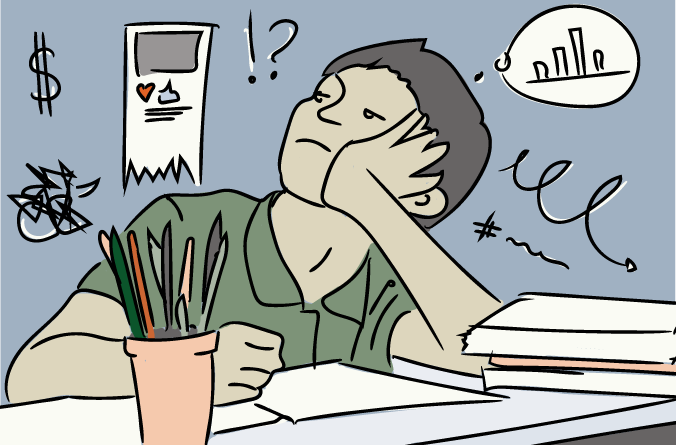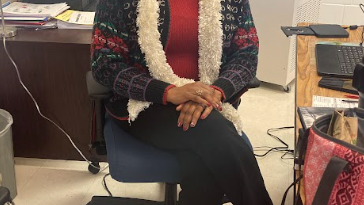The Struggle of Going Through my Entire School Career with Undiagnosed ADHD
Attention Deficit Hyperactivity Disorder: a neurobehavioral disorder that impacts the way you think, learn, and focus.
ADHD causes you to be restless, less focused, talkative, and lack motivation, among other symptoms. As you can assume, these symptoms can make it extremely hard to learn in school. Now imagine experiencing all of these symptoms, but having no idea they weren’t normal things that everyone faces. Feeling like you’re a failure because you believe everyone is handling their internal pressure better than you. Your imagination is my reality.
It wasn’t until this school year, my 11th grade year, that I received my ADHD diagnosis. I have ADHD-I: the less hyperactive type of ADHD, which is harder to diagnose. ADHD-I is the inattentive type of ADHD: rather than dealing with a hyperactive body, people with this type are struggling to tame their hyperactive mind.
I know everyone has their own idea of what someone with ADHD is. The kid who speaks out of turn in class, who needs extra help, has a messy backpack, etc. To be honest, there are kids with ADHD who are like that, but there are people with it who aren’t. I know personally I can keep my things organized, but I can’t remember something I was just told 30 seconds prior. Not everyone is affected the same way.
Having a somewhat later ADHD diagnosis was both a blessing and a curse. Middle school was absolute torture to go through without realizing I had an underlying problem. After transitioning into the routine of having more classes, teachers, and work was when my attentive problems started to arise. Procrastination, by then, had become a daily habit. It was always followed by days spent in panic trying to complete all the assignments I had held off on doing. My focus was at an all-time low. If I didn’t care enough, my brain was somewhere else.
I wasn’t used to having seven responsibilities. Having to learn from seven different people with different teaching styles and work ethics was very overwhelming to me. Trying to maintain focus in each class both inside and outside of school was a tedious task. I never, ever, did homework. Home was where I would allow my thoughts to run rampant, so even attempting to do work at home was out of the question. The teacher and the subject would dictate whether or not I would care enough to do well or not.
Online school was… questionable. Academically, it was the worst I had ever done. It was mainly due to the lack of structure that virtual learning held. Being thrown into a completely different way of learning after taking years to try and adapt to a different style was frustrating, to say the least. My mental health was deteriorating by the second. I had no motivation at all. No assignments were being done, not until the last day of the quarter at least. I lacked any ounce of attention I previously had. I felt like there was a glass wall blocking me from getting to where I needed to be.
It was my failure as a sophomore that encouraged me to try harder as a junior. When in-person school returned, I tried to use certain strategies to keep myself on top of my work. I didn’t want to repeat my previous grades or mental health status. However, it is still difficult to get a hold of. Infact, it took me longer than it should have to even write this piece. I would write a bunch one day and then not touch it for 3. Motivation and focus is a hard thing for me to grasp, even now. My diagnosis didn’t make me magically ‘fixed’, but it did give me a shortcut into finding out ways to better myself and my behaviors.




